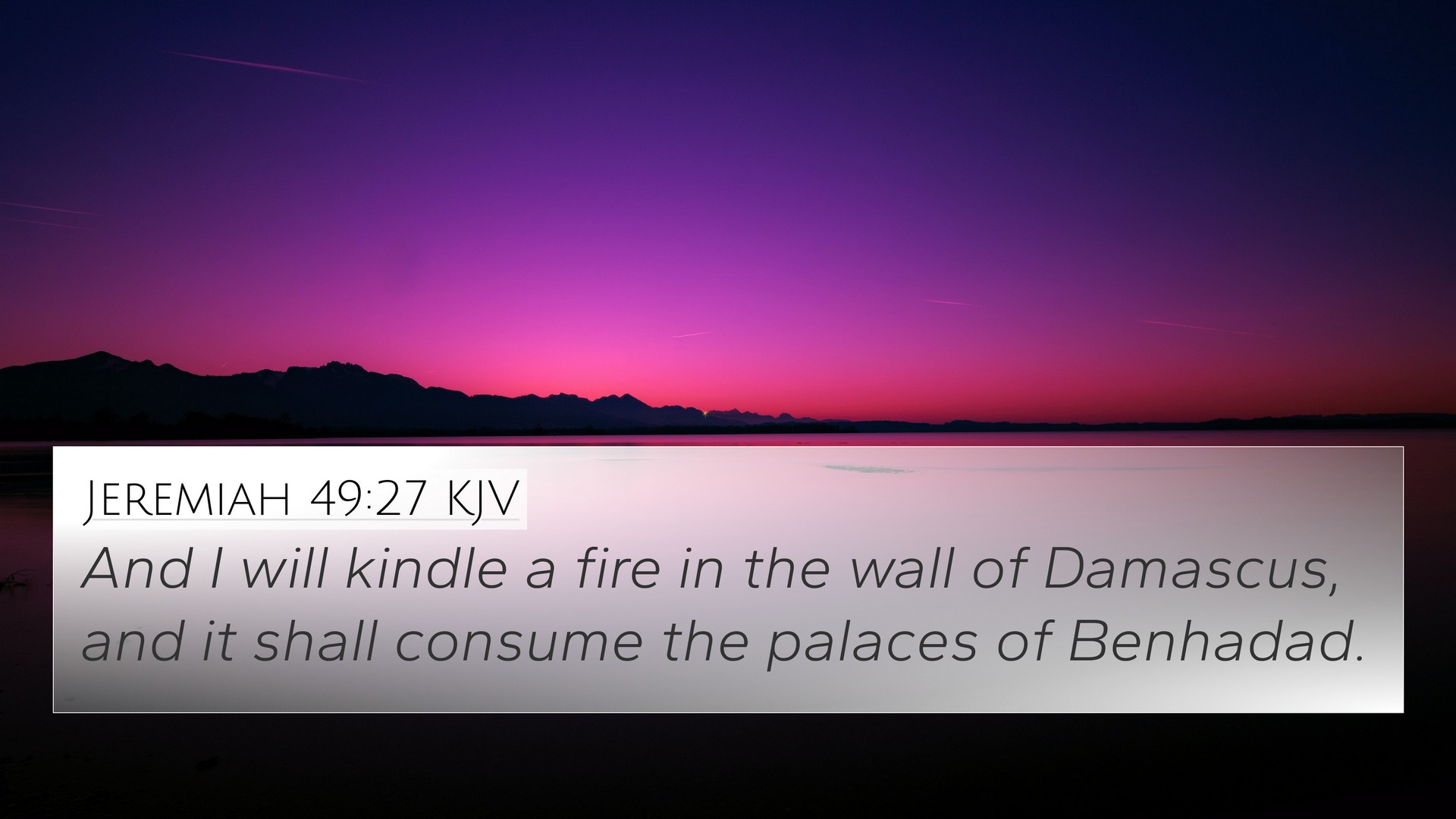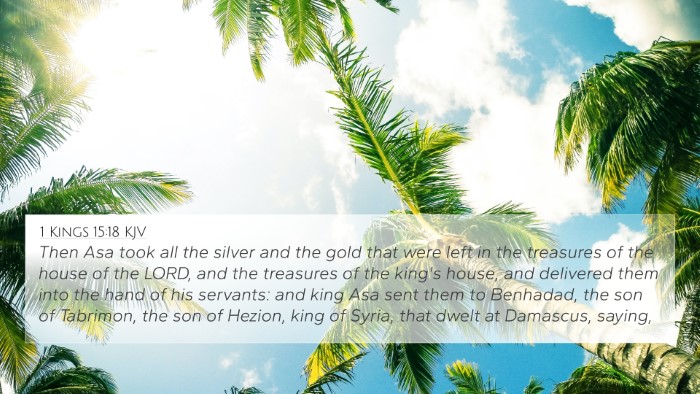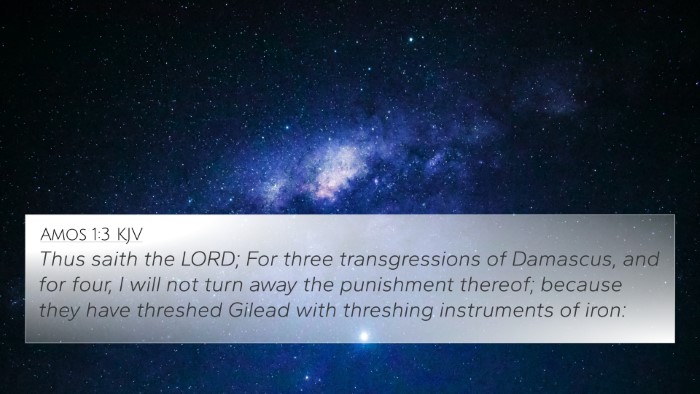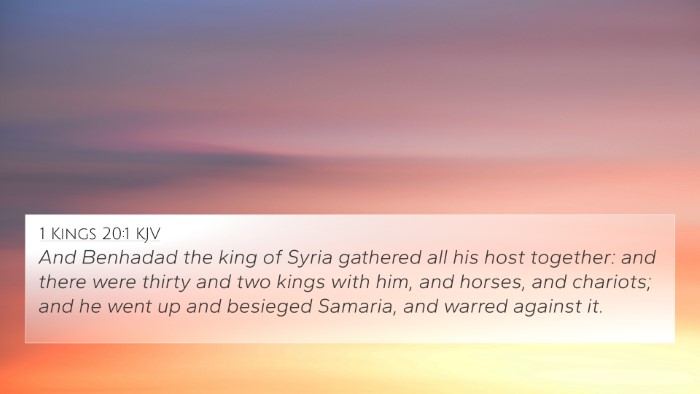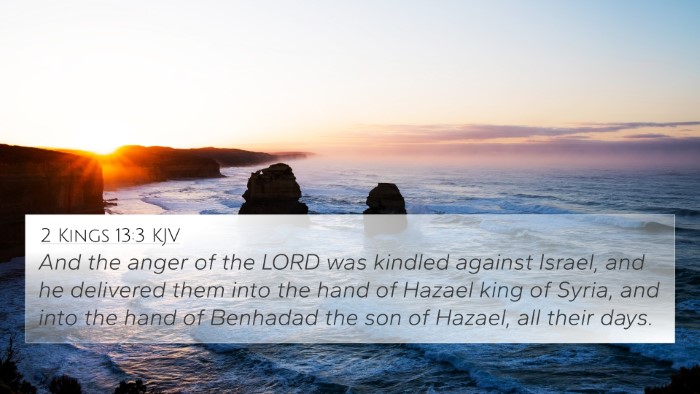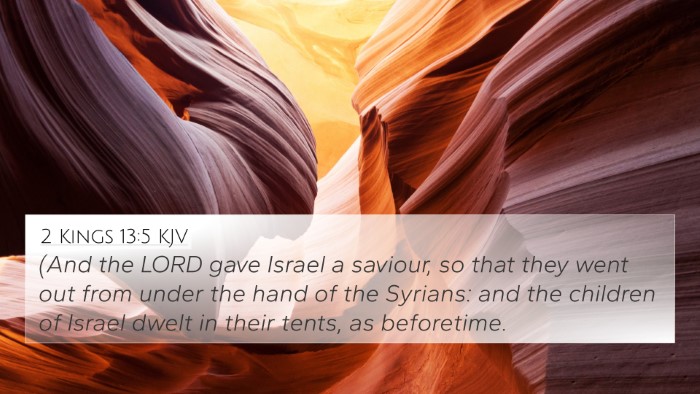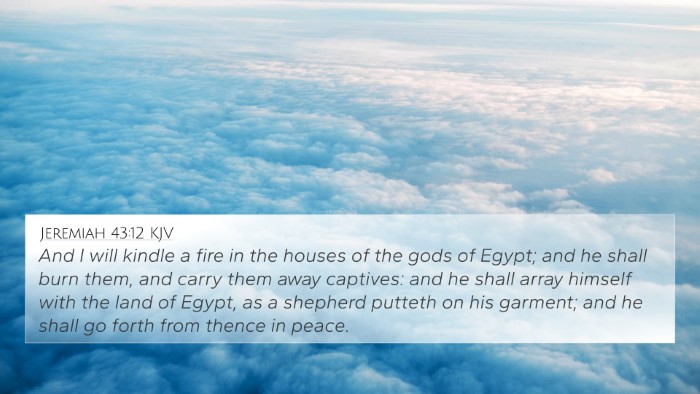Understanding Jeremiah 49:27
Jeremiah 49:27 states, "And I will set fire on the wall of Damascus, and it shall consume the palaces of Ben-hadad." This verse serves as a prophetic declaration regarding the impending judgment and destruction of Damascus, the capital of Aram (Syria). The imagery of fire signifies not only destruction but also God's purifying judgment. In understanding this verse, it's beneficial to explore insights from renowned public domain commentaries such as those by Matthew Henry, Albert Barnes, and Adam Clarke.
Background of the Text
In the context of Jeremiah, this prophecy against Damascus is part of a larger narrative whereGod speaks judgment against various nations for their continued opposition to Him and their wicked ways. Historical records indicate that Damascus was a significant city, often at odds with Israel. The mention of Ben-hadad references a series of kings from Damascus who were particularly known for their conflicts with Israel.
Insights from Commentaries
Matthew Henry's Commentary: Henry emphasizes that the fire symbolizes the irresistible power of God’s judgment against nations that oppose Him. He notes the historical importance of Damascus and speaks of God’s sovereignty over the powers of the earth, highlighting that even formidable cities will fall if they stand against divine authority.
Albert Barnes' Notes: Barnes explains that the "fire" indicated represents both divine judgment and a metaphorical cleansing. He relates the destruction of Damascus to the ultimate fate of unrepentant nations, suggesting a broader application for understanding how God deals with nations in rebellion against Him. He characterizes the palaces of Ben-hadad as being significant in demonstrating the power of God’s word in the face of earthly authority.
Adam Clarke's Commentary: Clarke elaborates on the implications of fire destroying the palaces and suggests that this act is indicative of the judgment day when divine justice will be served. He notes that Ben-hadad, although a king, is not spared from divine retribution, illustrating the principle that all earthly powers must answer to God.
Thematic Connections and Cross-References
The verses surrounding Jeremiah 49:27 weave a rich tapestry of biblical themes regarding judgment, authority, and divine sovereignty. Here are several related verses that enhance understanding through cross-referencing:
- Amos 1:4 - "I will send a fire upon the house of Hazael, which shall devour the palaces of Ben-hadad." This verse parallels Jeremiah by also declaring judgment against the house of Ben-hadad.
- Isaiah 17:1 - "The burden of Damascus. Behold, Damascus is taken away from being a city, and it shall be a ruinous heap." It connects closely with Jeremiah’s message, reaffirming the destruction of Damascus.
- Jeremiah 49:23 - The preceding verse details the distress of Damascus, setting the stage for the prophecy in 49:27, highlighting the city's impending doom.
- Ezekiel 47:16 - Mentions the borders of Damascus, which contextualizes its geographic importance relative to the prophecies against it.
- Zechariah 9:1 - "The burden of the word of the Lord in the land of Hadrach, and Damascus shall be the rest thereof." Indicates ongoing concern for the city and its significance among the nations.
- Isaiah 10:12 - A broader theme of judgment upon nations, highlighting God’s sovereignty even over mighty empires.
- Jeremiah 46:1-2 - Related discussions on God’s judgment on nations, providing a thematic link to the prophetic messages seen in Jeremiah 49.
Inter-Biblical Dialogue
Understanding Jeremiah 49:27 involves recognizing inter-biblical dialogues, where themes of judgment and divine sovereignty echo throughout scriptures. This reverberation of prophetic messages links the Old Testament with the New Testament themes concerning divine judgment and redemption. For instance:
- Romans 1:18 discusses God's wrath against unrighteousness, paralleling the judgment seen in Jeremiah 49:27.
- Revelation 18:2 speaks of the fall of Babylon, akin to the fall of significant cities like Damascus.
- Matthew 23:38 mentions the desolation of Jerusalem, another city facing divine judgment, resonating with the themes in Jeremiah.
Practical Application of Cross-Referencing
This verse serves as a critical reminder of God's justice and the eventual fate of all nations that turn from Him towards wickedness. Identifying connections across scripture is essential for a comprehensive understanding of biblical themes.
Tools for Bible Cross-Referencing
For deeper study, utilizing tools and resources for Bible cross-referencing can enrich one's understanding:
- Bible Concordance: Helps find words and themes throughout the Bible, aiding in thematic analysis.
- Cross-reference Bible study: Methods such as thematic study aid in seeing how different passages connect.
- Bible reference resources: Various guides exist to assist in linking Bible scriptures effectively.
- Bible chain references: Techniques that create a "chain" of verses related to a particular theme or topic.
Conclusion
In summary, Jeremiah 49:27 offers profound insight into God's justice and the consequences of national sin. Through comparative Bible verse analysis and thematic connections, we can discern the unity and continuity of God’s message across the scriptures. Whether one is engaged in personal study or sermon preparation, exploring these themes reinforces the importance of aligning with God's will and recognizing His sovereign authority over all nations.
